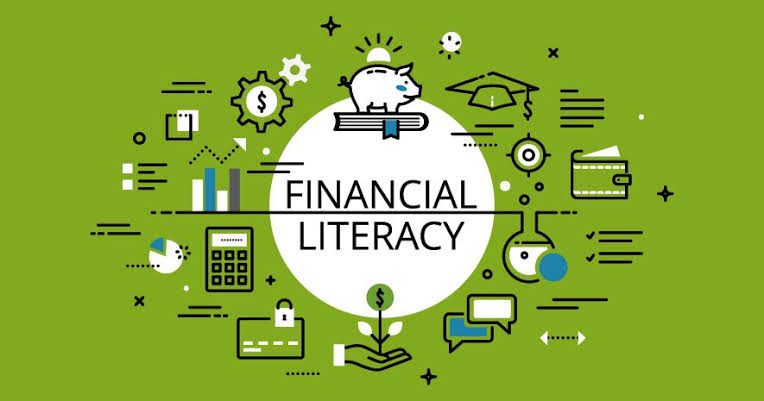Economic Issues
Financial Literacy -By Olateju Rildwan
Investments allow you to make your money work for you. It is vital to understand fundamental investment terms like Return On Investment (ROI), Risk mitigation, and Investment diversification, to mention a few.

What is Financial Literacy
Financial Literacy is the understanding and application of different financial skills, services, and products to manage money-related issues effectively.
Financial literacy equips individuals with the skills required to achieve financial stability and avoid/or manage significant financial crises in life.
Financial literacy Involves The following;
- Budget to manage your money.
- Financial plans to pay bills, save and invest.
- Basic knowledge of how loan schemes and insurance work.
- Basic understanding of Credit cards and credit scores.
- Investment Management
Basics of Financial Literacy
Financial skills can be broken down into four basic subjects, which are listed below;
Budgeting
Budgeting involves planning between spending, saving, investing, and others. It involves creating a balance in the allocation of your income. Good budgeting takes you toward financial security and away from debts.
Investing
Investments allow you to make your money work for you. It is vital to understand fundamental investment terms like Return On Investment (ROI), Risk mitigation, and Investment diversification, to mention a few.
Such understanding imbues you with the necessary information required to make intelligent decisions when investing.
Lending Services
You may need to acquire a loan at some point in your financial life. Understanding how the scheme works will help you make smarter decisions. Information like interest rate, compound rate, and other essential details about the loan’s structure.
Taxation
Tax rates are different for different financial sources. Taxation permits the government to maintain the economy and keep the country running. It is not a bad idea to know how you are affected by it and how possibly you can legally avoid it.
Personal Financial Management ( PFM)
PFM is the combination and application of the aforementioned four to manage your financial life and achieve financial security.
Benefits of Financial Literacy
- It allows you to take charge of your financial life.
- It provides guidelines to know to avoid debts and achieve financial prosperity.
- It helps you manage and achieve your long-term financial goals
How to Achieve Financial Literacy
- Read financial or money-related books like Rich dad and Poor dad by Robert Kiyosaki, the richest man in Babylon by George Classon, The Wealthy Gardner by John Soforic, Napkin Finance by Tina Hay, and The Intelligent Investor by Benjamin Graham
- Read online publishers and subscribe to newsletters. Publications from Financial Times and Fortune will keep you updated on financial trends. Websites like Investopedia and Bankrate will be helpful on your investment and financial literacy journey, respectively.
- Listen to financial podcasts like How to money, Jill on money, and Robinhood snacks.
- Connect with a financial expert: A financial expert can help you with financial questions by providing insights on moving from where you are to where you want to be financially over a given term.
- Start by keeping a budget: Knowledge is only potential power until applied. Start applying what you learned in books, podcasts, and advice from financial experts. Start savings, retirement, and investment plan, and track your spending to avoid all excesses.
Conclusion
Financial Literacy is necessary to achieve economic prosperity and build long-term wealth. Without financial literacy, people will face debt and financial frustration, affecting other areas of their lives. Financial literacy is not a choice; it is a necessary skill for survival.










